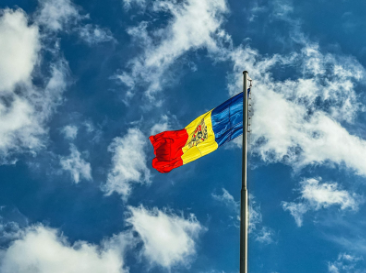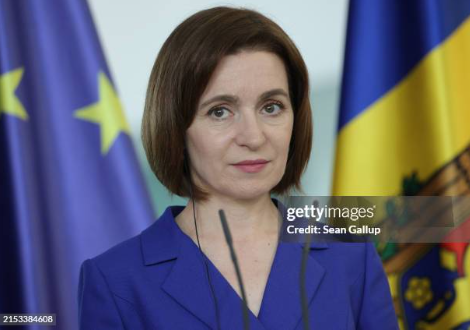The Key to Moldova’s European Future
By Miruna-Antonia Aniculăesei. Read: 3 minutes 25 seconds
After its recent referendum that would affect its accession to the European Union (EU) and presidential elections, we can ask the Republic of Moldova what freedom feels like. Recently, on the 20th of October and, respectively, on the 3rd of November, the Moldavian citizens had the opportunity to vote for their country’s European future. Russia, their controlling neighbour, has tried to modify the outcome of these two events in accordance with their interest. This article will explore the results of the aforementioned events, as well as Russia’s reaction and intervention.
Firstly, the accession to the EU has been a widely-debated topic within Moldova and whether or not it would become more politically isolated from the rest of Europe. Becoming a Member State would allow its citizens to have more educational and working possibilities, along with more accessible travel and easier economic integration. The referendum organised on the 20th of October 2024 had the purpose of changing the State’s Constitution in order to secure a European position. However, its orientation toward the Occident would put a strain on Russian-Moldavian affairs, leading to a division between EU supporters and Russophiles. On the specified date, according to Moldova’s Central Electoral Commission (CEC), approximately 50.42% voted in favour of adding the “European identity” to the Constitution. On one hand, the narrow victory was criticised by the current President, Maia Sandu, on the social media platform “X” (formerly known as “Twitter”), who accused the Russian state of organising criminal groups that bought 300,000 votes, spreading fear and misinformation. The instability that they aimed for would have created a vulnerable target out of Moldova, leaving it open to other possible machinations. On the other hand, Dmitri Peskov, the Kremlin’s spokesperson, has condemned both the referendum, arguing the strange percentage, and the President’s accusation, supporting the fact that her arguments do not have substantial proof, as presented by the journal “Adevărul”.
Secondly, on the same day as the constitutional referendum, the first round of the elections took place. According to CEC, the 1,562,704 voters were mostly in favour of Maia Sandu, the current Moldavian President and the leader and founder of the Party of Action and Solidarity, obtaining a percentage of 42,40%. Her runner-up, Alexandr Stoianoglo, an independent candidate, obtained 26,01% of the votes, and because neither of them had reached a sufficient percentage, the second round of the presidential elections was organised on the 3rd of November. Before discussing the events of the second round, it is important to mention that the President has expressed her pro-Western and pro-EU stance multiple times, while her competition is known as a pro-Russian politician and one of Ilan Şor’s, Moldova’s most infamous fraudulent and pro-Russian oligarch collaborators. In this way, the second round would define both the future of Moldova and its influences. The end of the election was marked by the victory of Maia Sandu who, according to CEC, obtained 55.35% votes out of 1,680,569. Furthermore, the results present a difference in political views between the diaspora population and the one from within the borders. While the diaspora voters were mainly supporters of Sandu, making up 80% of her votes, Alexandr Stoianoglo seemed to be the favoured candidate on Moldavian territory, obtaining more votes there (51,19%).
Finally, the Russian presence was strongly felt during the election season. Maia Sandu’s anti-Russian stance and her slogan “Save Moldova!” offered her a means to gain increasing support. As a result, on the 3rd of November, there were reports of the Kremlin buying votes; Ilan Şor was accused of spending $40 million to corrupt voters by the National Police, according to Europa Liberă România. Additionally, they are blamed for offering sums of money to some Romanian influencers to endorse Alexandr Stoianoglo, as explained by the newschannel Antena 3 CNN, and thus, interfering with the elections. According to Digi24, mobilising the voting population of Transnistria, one of Russia’s spheres of influence, was another method of rigging the ballots in favour of Stoianoglo, but over 20% of the votes still supported Sandu. Moreover, after the elections ended, according to Europa Liberă România, Dmitri Peskov categorised them as “undemocratic” and “unjust”, criticising the fact that the Moldavians living in Russia did not have sufficient voting stations and emphasising how that did not allow the entire population to vote. The Kremlin’s agent denied any possible interference, and even denied that they had any presence in Moldova.
It is natural to believe that the present political situation in Moldova seems to be stabilising after a tumultuous period, and the country seems to be on its way to achieving European integration. There might still be disagreements between pro-EU and pro-Russia citizens and politicians, but the Republic of Moldova’s stance will be more consolidated by the upcoming Parliamentary elections. Whether or not external influences will have an impact on the state remains to be seen in the near future.

